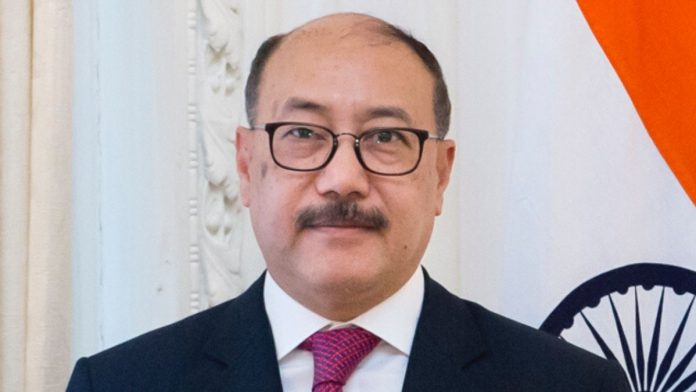Manas Dasgupta
NEW DELHI, Mar 9: India on Tuesday summoned the British High Commissioner in Delhi to express its disapproval of the discussions on farmers’ protest and press freedom in the British Parliament calling it “gross interference” and “vote bank politics”.
Raising strong objections to British parliamentarians on Monday debating the three farm laws enacted last year, the ministry of external affairs said in a statement that the foreign secretary Harsh Vardhan Shringla made it clear that the discussion in the UK parliament represented a gross interference in the politics of another country. Shringla called the debate “vote bank politics” and also highlighted that there was a misrepresentation of events.
This is the first time the government of another nation has officially conducted internal discussions on the protests, which have been continuing for more than 100 days.
The 90-minute debate was held on Monday, during which several MPs of the Labour party, Liberal democrats and the Scottish National Party raised concern over the Indian government’s reaction to the protests.
The UK government had responded that concerns will be raised with India when both Prime Ministers meet “in person.”
The statement said the foreign secretary had summoned the British envoy and conveyed “strong opposition to unwarranted and tendentious discussion on agricultural reforms in India” in the British Parliament. “He advised that British MPs should refrain from practicing vote bank politics by misrepresenting events, especially in relation to another fellow democracy,” it said.
Taking part in the debate which Foreign, Commonwealth and Development Office (FCDO) minister Nigel Adams noted that India had maintained that agricultural reforms were a domestic matter. “Whilst this is an exciting time for the UK-India partnership, it does not hinder us from raising difficult issues,” the minister said and also added that the issue might feature in a candid discussion between UK Prime Minister Boris Johnson and his Indian counterpart Narendra Modi when they meet in the future.
A group of British MPs had also debated “use of force” in farmers protest in India. The debate had evoked a sharp response from the Indian High Commission in London yesterday. “We deeply regret that rather than a balanced debate, false assertions – without substantiation or facts – were made, casting aspersions on the largest functioning democracy in the world and its institutions,” the High Commission had said in a statement.
“Foreign media, including the British media, are present in India and have witnessed the events under discussion first-hand. The question of lack of freedom of the media in India does not arise,” it read.
In February, the US had backed “peaceful protests” by farmers. Hailing the farm laws as reforms in the agriculture sector, it said they would “Improve Efficiency”.
In remarks seen to indicate support for the farm laws, the US said, “In general, the United States welcomes steps that would improve the efficiency of India’s markets and attract greater private sector investment”.
“We recognize that peaceful protests are a hallmark of any thriving democracy, and note that the Indian Supreme Court has stated the same. We encourage that any differences between the parties be resolved through dialogue,” said a US Embassy spokesperson, quoting from the State Department briefing.
India had reacted sharply to the US State Department’s comment on farmers protest also. In its response to the US statement, India compared the Red Fort incident with that of Capitol Hill. The Centre also objected to international celebrities like climate activist Greta Thunberg, pop star Rihanna tweeting on farmers’ protest and said the action was irresponsible.
Shortly before that, India had issued sharp remarks following comments by international celebrities and politicians on social media regarding the protests. The government had said the remarks were “ill-informed” and “unwarranted” as the matter was linked to the internal affairs of a democratic country.

